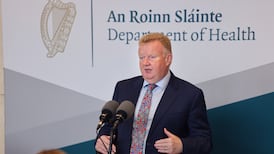EducationThe first course in Ireland to provide a third-level qualification in advocacy was formally launched in Dublin by Minister of State Mr Ivor Callelly last week.
The Higher Certificate in Advocacy Studies is the result of collaboration between the Equality Authority, Sligo Institute of Technology and Comhairle, the national agency that provides information and advice on social services.
Advocates work with and for people who are marginalised or vulnerable to help ensure that their rights are respected and that they do not suffer discrimination. Where possible, advocates try to empower people to speak or lobby on their own behalf.
The new Disability Bill gives an advocacy remit to Comhairle, officially recognising the importance of such work.
Much of the formal advocacy work that has been carried out in Ireland thus far has been done through disability organisations, where people take on an advocacy role for a disabled person and through Citizen Information Centres. But it equally applies to other marginalised groups, such as Travellers, refugees and asylum-seekers.
The work can vary greatly, from helping people to fill out social welfare applications or deal with discrimination in the workplace, to helping disabled people have a say in how services are provided to them.
Until now, Irish education centres have only offered limited courses on very specific types of advocacy, making the new Higher Diploma in Advocacy Studies at the Sligo Institute of Technology the first general advocacy course.
The course is taught by distance learning and the 40 students enrolled on it will participate from different part of the country. Under the programme, they will attend monthly seminars and maintain virtual contact with tutors as they work their way through course materials and complete assignments.
One of the students, Carmel Donovan from Athlone, is currently working as an advocate with People With Disabilities in Ireland. She is also chairperson of the Roscommon Network of PWDI. Some of her work has involved negotiating with employers and arguing that they should look upon disabled people as potential employees.
Like many advocates, Donovan is disabled herself and is aware what it feels like to be on the receiving end of less than fair treatment. "One of the things that has really struck me is how much I had in common with people from other marginalised groups. Reading interviews with Travellers, for example, it is really striking how they are saying exactly the same thing as we are, such as going for a job and realising that the person who is not disabled, or who is not a Traveller, is going to get it," she says.
For Donovan, the course is important not just because it provides a professional qualification but also because of the range of subjects it covers and the opportunities it provides students to improve their practical skills.
"I think that anybody who needs an advocate needs the very best. So it's important that there is professional training," she says.
Over two years, the course will cover 12 modules, including advocacy, equality studies, communications, law, disability awareness, information management and ethics.
Mairide Woods, of Comhairle, says the agency is already doing advocacy work through the Citizen Information Centres (CICs). The need for the course arose from discussions with staff in these centres, she explains. Contact was initially made with Sligo IT as a member of the college staff was very involved in the local CIC.
While some of the students are CICs, the rest come from public or community organisations.
Patrick O'Leary of the Equality Authority says that discrimination "occurs on a regular basis in employment or service provision" and that it was "critical to develop other means to address issues of discrimination". He understands advocacy as "a positive way to challenge discrimination" and says he is confident the course will help build expertise.
The head of the Department of Humanities and Fine Arts at Sligo IT, Dr Perry Share, states that while much advocacy work was done informally in the past, the need for professional training had been identified. It is hoped, he says, to extend the course and develop it to degree level in the future.








